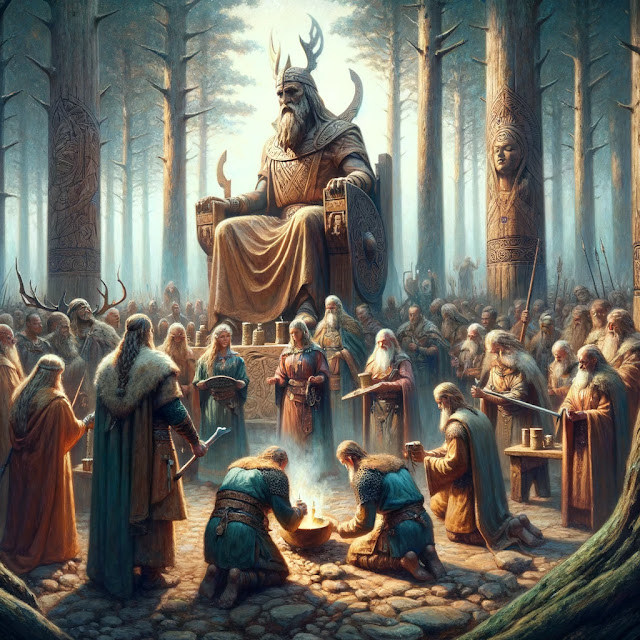Understanding the Lifestyle of Norse People
Understanding the Lifestyle of Norse People
A Community Bound by Land and Sea
The foundation stone of the society of the Norse people were family and community structures. The Norse people lived in small villages or farmsteads and were predominantly agrarian societies where much of their lives revolved around farming activities such as cultivation of land and animal rearing. A common feature in a typical Norse homestead was a longhouse that served as housing for an extended family together with its domestic animals. It is within this structure that domestic duties such as cooking, crafting and socializing took place especially during long nights characterized by dark winters.
Farming in Nordic area was extremely tough due to unfavourable climatic conditions; however, they dealt well handling it planting barley oats rye among others while at the same time keeping livestock like cattle sheep goats pigs among others. Additionally, fishing along with hunting supplemented them heavily since there were many seas around them where fishes could be found easily than other places on earth.
The Role of Seafaring
Social Structure and Governance
Norse society was hierarchical yet comparably democratic compared to other european societies at the time. Free men and women had land ownership rights and could participate in the Thing where legal disputes were resolved while community decisions made. While there were kings and chieftains, they owed their power largely to support from their followers.
Women enjoyed a good deal of freedom in Scandinavian society.
They managed the household (run thriftily), took divorce without losing a share of joint estate.
Thirteenth-century sagas contain numerous stories about strong independent women who played vital roles in their communities among all Norse individuals.
Religion and Beliefs
The Norse religion mainly recognized the important influence of a number of deities including Odin, Thor and Freya. The Norse understanding of the world was closely connected with these deities as well as other beings such as trolls and elves who were involved in different capacities. By performing rituals and making sacrifices, it was possible to appease the gods for them to give blessings like bumper harvests or military prowess. Fate is central in this belief where destiny is largely predetermined by bravery and honor that would determine one’s position in the afterlife.
Legacy and Impact
Norse people have had an impact far beyond their raiding parties and expansion. Their settlements and trade networks played a significant role in shaping medieval European politics. There sagas as well as myths still remain as part of literature while their artwork along with mastery is still regarded beautiful just as they are smart.











